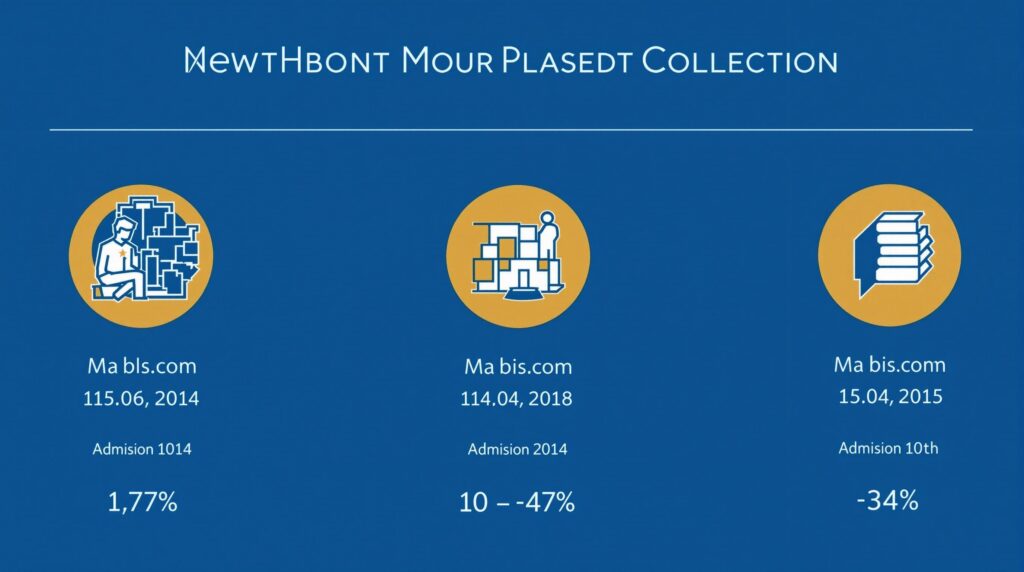Felons face considerable challenges when seeking education and employment opportunities after conviction, but numerous grant programs specifically target this population to reduce recidivism and promote successful reintegration into society. Recent studies show educational programs can reduce reoffending rates by up to 43%, making it crucial for those with felony records to understand what grants do felons qualify for and how to access these life-changing financial resources.
Key Takeaways
- The Second Chance Pell Grant Expansion now allows incarcerated individuals to access federal educational funding through 200+ approved prison education programs
- State-level initiatives like Florida’s Economic Empowerment Today provide vocational training and placement services specifically for nonviolent offenders
- Nonprofit organizations offer specialized business grants and mentorship opportunities for formerly incarcerated entrepreneurs
- Applying to multiple programs simultaneously maximizes funding chances and creates diverse support systems
- Documentation preparation and understanding eligibility requirements are critical to successful grant applications
Federal Pell Grants: Your Educational Foundation
The Federal Pell Grant program serves as the cornerstone of educational funding for people with felony convictions. Since July 2023, the Second Chance Pell Grant Expansion has dramatically increased access to higher education for currently incarcerated individuals. This initiative now connects over 200 approved prison education programs with eligible students behind bars.
To qualify for these grants, applicants must demonstrate financial need through FAFSA completion, hold U.S. citizenship or eligible non-citizen status, possess a high school diploma or GED, and for male applicants, be registered with Selective Service. The program caps lifetime eligibility at 12 semesters, providing a substantial opportunity for educational advancement.
Simon Garcia represents a powerful success story of educational transformation. While incarcerated in Kansas, he utilized Pell Grant funding to earn his associate degree, setting the foundation for his successful reentry into society after release.
It’s important to note that certain restrictions still exist. Individuals in federal or state facilities or those with involuntary commitments for sexual offenses may face additional barriers. While FAFSA applications don’t require background checks, applicants must disclose drug convictions that occurred during aid periods.

State-Level Programs and Workforce Development Initiatives
Beyond federal assistance, numerous state-level programs provide targeted support for felons seeking education and career advancement. Florida’s Economic Empowerment Today program offers a prime example, providing vocational training and job placement specifically for nonviolent offenders. This initiative, managed by the Broward State Attorney’s Office and OIC of South Florida, allows participants to avoid trial court processes upon successful completion.
The Workforce Innovation and Opportunity Act (WIOA) funds correctional education programs nationwide, including GED courses and vocational training. States like California have leveraged these funds to create specialized initiatives such as the Workforce Accelerator Fund, which targets underserved populations including those with criminal records.
Federal Work-Study opportunities become available to formerly incarcerated students post-release through FAFSA participation. These programs offer valuable on-campus employment at participating educational institutions, providing both income and relevant work experience.
To access these state-level resources, applicants typically need to prepare several key documents:
- Tax returns and financial statements
- Incarceration records and release documentation
- Proof of program enrollment or acceptance
- Identification and citizenship verification
Nonprofit and Private Scholarship Opportunities
The nonprofit sector offers specialized funding options that often have more flexible eligibility requirements than government programs. Life Skills Prison Ministry provides educational and business grants with a focus on building post-incarceration stability for returning citizens.
The TRANSFORM Business Grant represents another valuable opportunity, offering $1,000 in direct financial support plus a year-long mentorship program specifically designed for marginalized entrepreneurs, including those with felony convictions. This combination of funding and guidance addresses both the financial and knowledge gaps that can hinder business success.
For those pursuing entrepreneurship, the National Association for the Self-Employed (NASE) Growth Grants provide up to $4,000 for business development initiatives. While these grants require a $11.95 monthly membership fee, the potential return on investment makes them worth considering for serious entrepreneurs.
I recommend exploring organizations that offer specialized scholarships targeting formerly incarcerated individuals. These programs often understand the unique challenges faced by people with criminal records and may offer more holistic support services alongside financial aid.
Entrepreneurship Support for Formerly Incarcerated Business Owners
Entrepreneurship represents a viable path to financial independence for people with felony records who may face discrimination in traditional employment. Small Business Administration (SBA) Microloans provide up to $50,000 (averaging around $13,000) for business expansion through community lenders, often with less stringent background check requirements than traditional loans.
The FedEx Small Business Grant Contest awards $50,000 annually to innovative business ventures, with no explicit restrictions on applicants with criminal histories. This open eligibility makes it an accessible option for felons with compelling business concepts.
Inmates to Entrepreneurs offers free courses on business fundamentals both online and in select correctional facilities. These educational programs help build the foundation for successful business ownership post-release.
Industry statistics reveal that 3.8% of U.S. small business owners have criminal records, with 1.5% specifically having felony convictions. These numbers demonstrate that entrepreneurial success is achievable despite past legal issues, particularly when supported by appropriate funding and education.
Application Strategies and Common Obstacles
Successful grant acquisition requires strategic planning and preparation. When completing the FAFSA, focus on accuracy in all financial disclosures while understanding that most educational grants do not automatically disqualify applicants based on criminal history alone.
Organization proves crucial throughout the documentation preparation process. Create a centralized file containing all frequently requested items:
- Personal identification and citizenship documents
- Educational records and transcripts
- Financial statements and tax returns
- Criminal history information (as required)
- Personal statement or essay drafts
I strongly recommend adopting a multi-program application approach to maximize your funding opportunities. Apply simultaneously for federal Pell Grants, state workforce programs, and private scholarships to create a comprehensive support system rather than relying on a single funding source.
Manage expectations by recognizing that rejection is a common part of the grant application process. Prepare for potential setbacks by developing alternative funding plans and using rejection feedback to strengthen future applications.
Success Stories: From Incarceration to Achievement
Simon Garcia’s journey exemplifies the transformative power of educational funding. Through Pell Grant support, he completed his associate degree while incarcerated in Kansas, creating a foundation for successful reintegration upon release. His story mirrors countless others who have leveraged educational opportunities to break the cycle of recidivism.
Beyond education, numerous formerly incarcerated individuals have built thriving businesses with grant and loan assistance. These success stories span diverse industries from food service to technology, demonstrating the broad potential for entrepreneurial achievement despite criminal records.
Statistical evidence consistently shows that education significantly reduces reoffending rates. Recent studies indicate a 43% reduction in recidivism among those who participate in educational programs during or after incarceration, highlighting the societal benefits of these investments.
The long-term outcomes for grant recipients often extend beyond immediate financial gains. Many report improved family relationships, enhanced community standing, and the development of mentorship roles where they guide others with similar backgrounds toward positive change.
Resources and Next Steps for Immediate Action
To begin your funding journey, explore these immediate action steps:
- Complete the FAFSA application at studentaid.gov
- Contact prison education coordinators if currently incarcerated
- Research state workforce development agencies for local opportunities
- Create a calendar of application deadlines for relevant grants
- Prepare standardized personal statements explaining your educational goals and rehabilitation journey
Comprehensive resources exist for programs that explicitly accept applications from those with felony records. The Second Chance Pell Experimental Sites Initiative maintains a current list of participating educational institutions, while the Council of State Governments Justice Center offers guidance on accessing WIOA funding.
For entrepreneurs, the Inmates to Entrepreneurs program provides free online resources, and the SBA’s microloan program connects applicants with community lenders who often have more flexible requirements regarding criminal backgrounds.
By taking a proactive, organized approach to these funding opportunities, individuals with felony convictions can overcome financial barriers to education and entrepreneurship, creating pathways to long-term stability and success.
Sources
bestcolleges.com – Financial Aid and College Grants for Felons
collegefinance.com – The Best College Grants & Scholarships for Felons
abcnews.go.com – Pell Grants Offer Prison Inmates a Chance to Pursue College
fundingfact.com – Federal Pell Grants for Felons
insidehighered.com – A Revised Second-Chance Pell Experiment
bankrate.com – Small Business Grants for Felons



